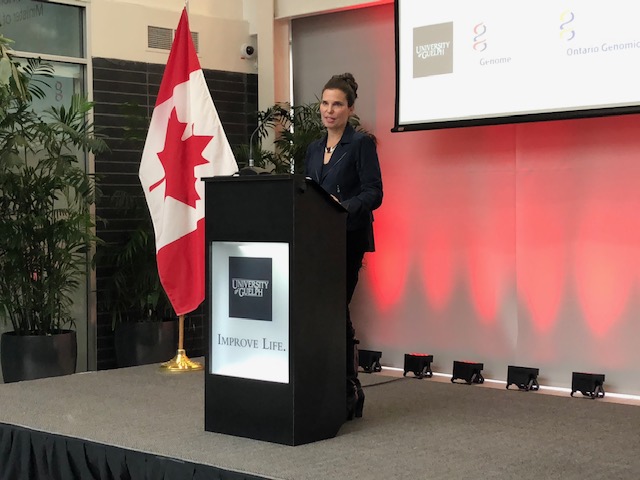Federal science minister Kirsty Duncan was at the University of Guelph on Monday as three genomics research projects received funding worth $1.5 million.

Two of the awards will come from Genome Canada’s Genomic Applications Partnership Program, the university said.
“Genomics research is driving innovation across many sectors, including health, forestry, agriculture, fisheries, mining, energy and the environment,” Duncan said.
“These exceptional projects we are investing in today encourage strong research partnerships and will help our economy and communities thrive.”

Get breaking National news
Prof. Bonnie Mallard with the department of pathobiology received $426,622 to help improve the health and welfare of beef cattle.
During a news conference on Monday, Mallard said the high immune response technology has already been developed for dairy cattle and will be adapted for beef cattle.
“It’s about being able to identify those animals that have the best immune response gene,” she said.
Mallard’s research will help combat bovine respiratory disease in beef cattle, which cost North American producers about $1 billion a year, according to a news release.
Integrative biology professor Mehrdad Hajibabaei and his team are receiving $840,000 to help protect Canada’s freshwater resources through improved genomic testing.
The team aims to use DNA meta-barcoding to generate data from watersheds across the country and monitor human impacts.
A third project is receiving $250,000 from Genome Canada’s 2017 Bioinformatics and Computational Biology Competition.
The team will be creating tools to help process huge volumes of DNA sequence data that will help monitor environmental health and manage natural resources.
The university said the three projects will end up receiving a total of $4.2 million with additional funding from public and private partners.








Comments